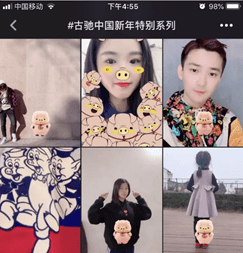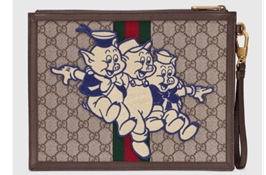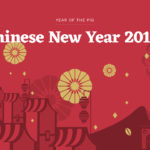Marketing to Gen-Z consumers in China | Daxue Consulting
The Luxury industry has shown great interest in Gen-Z consumers in China
With the upgrade of living standards, Gen-Z consumers in China ’s ability to purchase luxury brands is increasing. In China’s first-tier cities such as Beijing and Shanghai, almost all major shopping malls are home to foreign luxury brands such as Prada, Louis Vuitton, and Hermes.
China’s luxury goods industry makes up one-third of the global luxury market share; hence, the marketing strategies of global luxury groups and brands in China must be adjusted for Gen-Z consumers.
According to a Bain report, China’s Generation Z will become the main consumer group for luxury brands in the future
‘By 2025, Gen-Z consumers in China will account for more than 55% of the total consumption of luxury brands. They will also lead a new round of consumer culture, so superior luxury brands should integrate into and study their cultural phenomena, upgrade their brands, to continue to become a leading cultural brand.’
Chinese Generation Z has a massive consumption capability and empowerment of impulsive shopping. Therefore, it is becoming a new driving force for the growth of the luxury industry in China.
How can Luxury Brands Marketing to Gen-Z consumers in China?
China’s generation Z is the largest group in the world, numbering almost 149 million people. Generation Z refers to those born between 1998 and 2016. China’s generation Z has earned the nickname ‘Internet Generation’ because they are greatly influenced by what they see on the internet. Gen-Z White Paper by Kantar joint QQ Advertising predicts that by 2020, the consumption of Chinese Generation Z will account for 40% of the total consumption power in China.
Unique features of Gen-Z consumers in China
Marcie Merriman, executive director of Ernst & Young LLP, said in her report ”Rise of China’s Gen Z: New Challenge for Retailers” that Chinese Generation Z has unique beliefs, codes of conduct and experience, and are not simply a continuation of the Chinese Millennials (people born between 1981 and 1997).”

China’s Gen Z grew up during a dynamic surge of technological advancements. Moreover, Chinese generation Z grew up in the era of false news and false events. Therefore, they have a sophisticated sense of truth and quality.
Gen-Z consumers in China appreciate holistic brands and tend to choose brands with social responsibility, sustainability, and a personalized approach.
The truth is that it is not that easy to target China’s Gen Z and generate brand loyalty, because they are willing to interact with different brands and build a connection with a variety of brands. To target China’s Gen Z, brands must offer creative opportunities; they want their voices heard and are willing to pay for it.
They most frequently shop online and make decisions through social media.
China’s Gen Z vs. Millenials
Millennials consumers attribute brand culture to their personal identity, but they have broader acceptance of e-social networking, sustainable development, and second-hand luxury goods.
Compared to Chinese Millennials, Gen-Z consumers in China are more dependent on mobile-based social media. Hence social media strategy and utilization of social commerce are important when targeting China’s Gen Z.
Why does Chinese Generation Z have a strong purchasing power?
According to the Bain&Co. Study, the income of China’s Gen Z mostly comes from parents. The consumption ability of Chinese Generation Z is often underestimated by the brands because of their young age. In fact, Chinese Generation Z will soon become the highest-level consumption group. According to 2018 China’s Gen Z, White Paper by Kantar and Tencent, the average income of this generation is 3501 yuan/month, while the minimum wage standard of Shanghai in 2018 is 2420 yuan/month. Chinese Generation Z, who has not worked, already has the financial ability to surpass the working class.

In addition, with the continuation of the trade war, the Chinese government reduced VAT and import tariffs to stimulate local consumption. The 20-year-old Gen-Z consumers in China are rapidly becoming the leading consumers of luxury goods in China.
The distinction between Western and Chinese generation Z
Surveys of 15,500 young people born in 1998 and later in nine countries (China, the United States, Britain, France, Germany, Italy, Poland, Turkey, and Brazil) show that Chinese Generation Z is carefree, spend more, and saves less than Gen-Z in the West.
China’s Gen Z expenditure accounts for a higher proportion of household income than the western world. China’s Chinese Generation Z expenditure accounts for 15% of household income, compared with 4% in the United States and Britain. Although most people haven’t started earning wages yet, they spend a lot of their families’ money.
Because Chinese Generation Z was born in the era of the country’s one-child policy and exponential economic growth, they live comparatively wealthier lives than any other generation in China.
In contrast, Gen Z in the United States and Europe experienced the 2008 financial crisis and its brutal consequences, graduating at a time when student debt in the United States is at an all-time high.
Marketing to Gen-Z via WeChat, Weibo and Diverse Marketing Platforms
Chinese Generation Z spends an average of 2 hours and 43 minutes a day on social media; therefore, it is not be overlooked when marketing to China’s Gen Z.
Super APPs like WeChat and Sina Weibo have become battlefields of digital marketing for luxury brands. Xiaohongshu, Tik Tok, and Toutiao have not yet been widely used by international luxury brands, but these platforms show great potential.


[Source: Tik Tok, “#Gucci# topic activities”]
Gucci launched a #Gucci# topic on Tik Tok and co-released its first commercial sticker album, GG Piggy. Many celebrities, like Lu Han and Li Yuchun, used piggy stickers to participate in the activities and released videos, which attracted a lot of attention. Finally, more than users created more than 700,000 videos with the #Gucci# stickers.
The new luxury doctrine: sustainability is KEY to target China’s Gen Z
Compared to Chinese millennials, China’s Gen Z is more conscious and concerned about public welfare and environmental protection. For example, in terms of environmental protection, Chinese Generation Z regards itself as a member of the world’s ecosystem and feels responsible and obligated to protect the environment.
Luxury goods with the themes of Sustainability, Ethics, and Innovation, are very popular in the international market. As Gen-Z consumers in China become a major consumption group, sustainability will become more critical in the future Chinese luxury market.
The impact of KOLs on Chinese Generation Z
According to China luxury forecast 2019, about 60% of consumers who follow fashion KOLs consider their opinions before making purchases.

For instance, Burberry chose Kris Wu as its spokesperson in 2016 and launched a new cooperative Series in 2017. DIOR promoted Angelababyas the brand ambassador of China in 2017. At the same time, a large number of luxury brands have also enhanced their characteristics by appointing famous stars as spokespersons. Burberry cooperates with Kris Wu and Prada works with Cai Xukun to please Chinese Generation Z.

Product upgrade-exploration of luxury brands targeting China’s Gen Z
Providing personalized services
When targeting China’s Gen Z, it is essential to emphasize their uniqueness, as they are willing to pay for products that fit their identities. Nearly half of those born in the 90s want to get brand information through physical stores. Luxury brands can also strengthen their links with young people by opening flash stores and co-exhibitions with artists when marketing to China’s Gen Z.


[Source: Gucci, “the Gucci Pig Family and the ‘Artists Here’ activity”]
For example, Gucci launched “Artists Here” and introduced a series of limited items during the last Spring Festival, the ‘Gucci Pig Family.’ Gucci’s case created elements suitable for young people’s culture, and thus enhance the vitality of the brand among China’s Gen Z.
Opportunity for foreign enterprises in the luxury market in China
The new E-Commerce Law, which came into effect on January 1, 2019, promotes the increase of domestic consumption of luxury goods by regulating purchasing agents and professional buyers.
In addition, Louis Vuitton, Gucci, and other luxury brands have reduced prices, although not by much, the fact itself gives consumers the corresponding incentives.
Although China’s Gen Z is still young, they have had a far-reaching impact on the luxury market in China. Efficiently marketing to China’s Gen Z is tantamount to grabbing the most dominant consumers in the market. Boastful marketing is out of date because Chinese Gen Z values authenticity, ethics, and quality. Their attitude towards life is sincere, and they have enough patience and ability to face the future luxury market.
Author: Zichun LI
Make the new economic China Paradigm positive leverage for your business
Do not hesitate to reach out our project managers at dx@daxue-consulting.com to get all answers to your questions










![[Podcast] China Paradigm #24: How brands can master Chinese social media, livestreaming, and KOL marketing](../wp-content/uploads/2019/04/China-business-podcast-Livestreaming-Kols-150x150.jpg)




